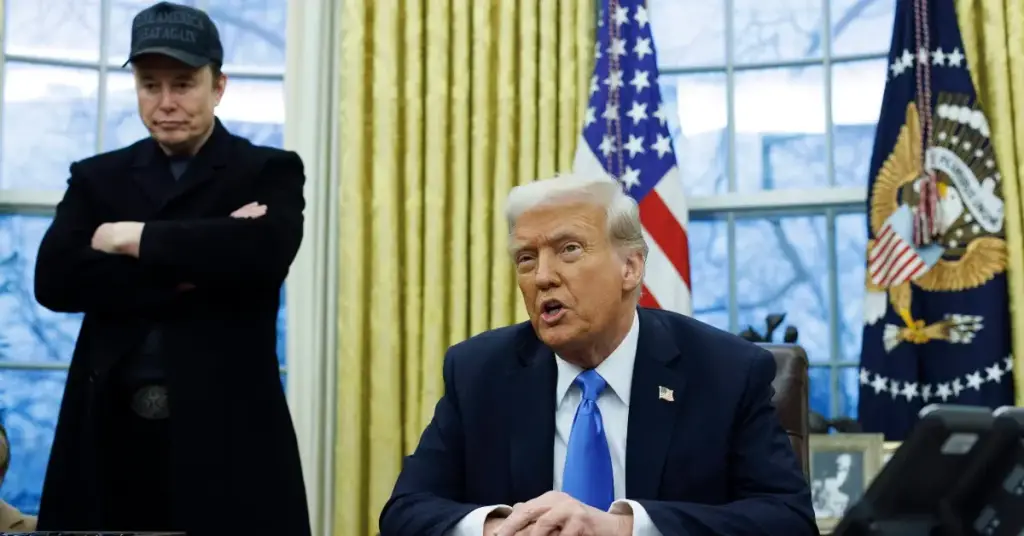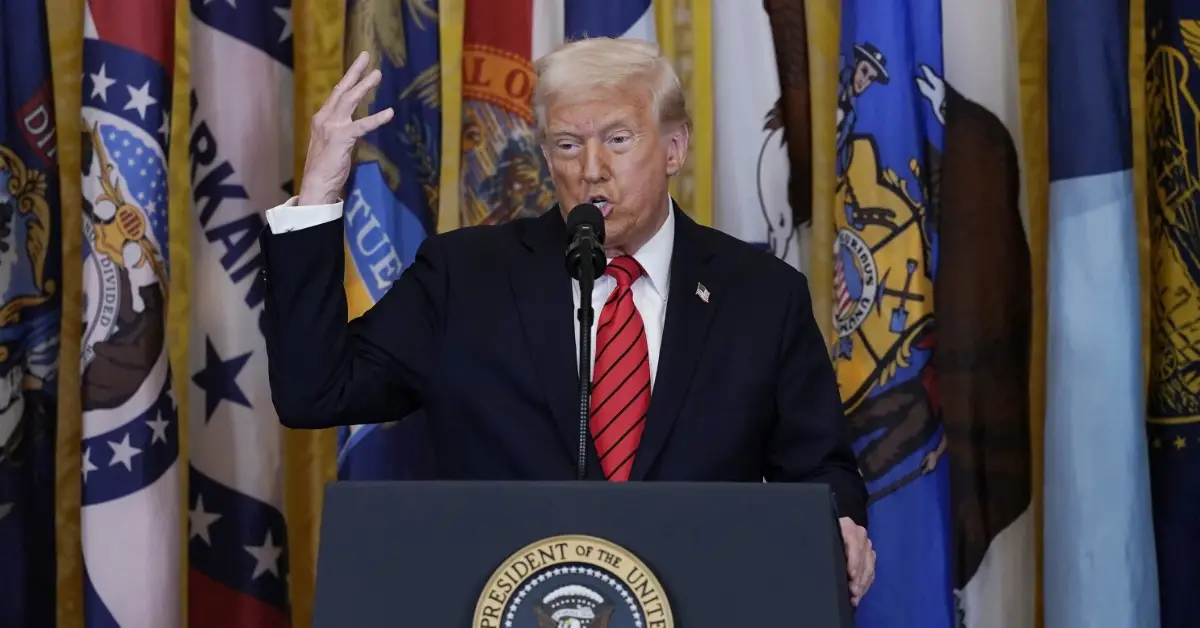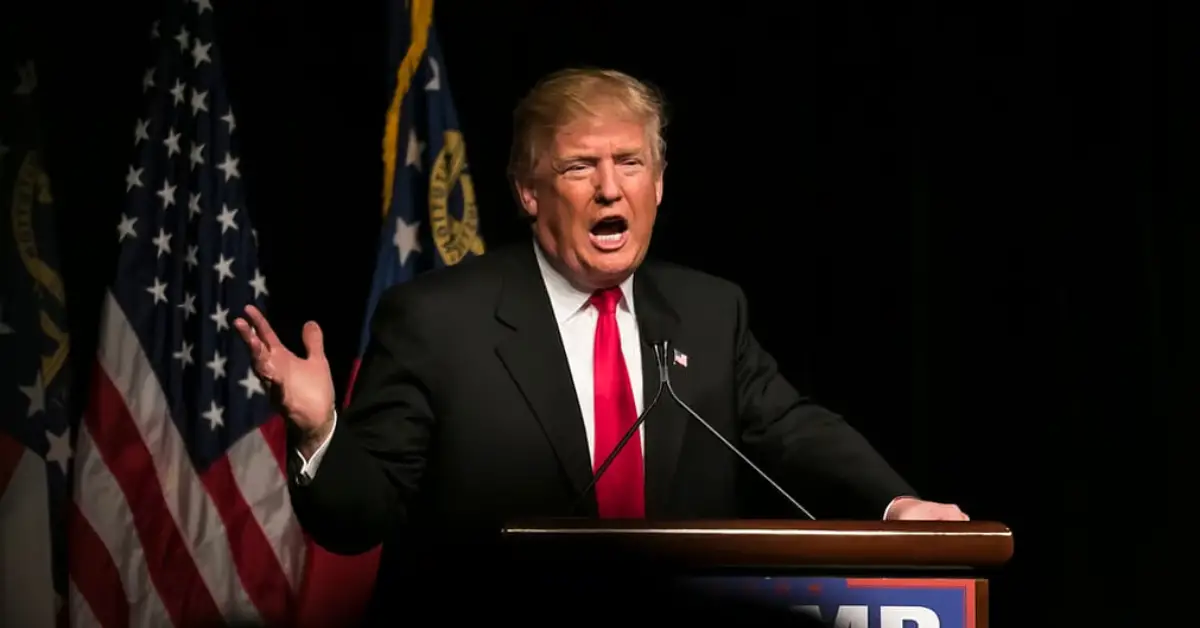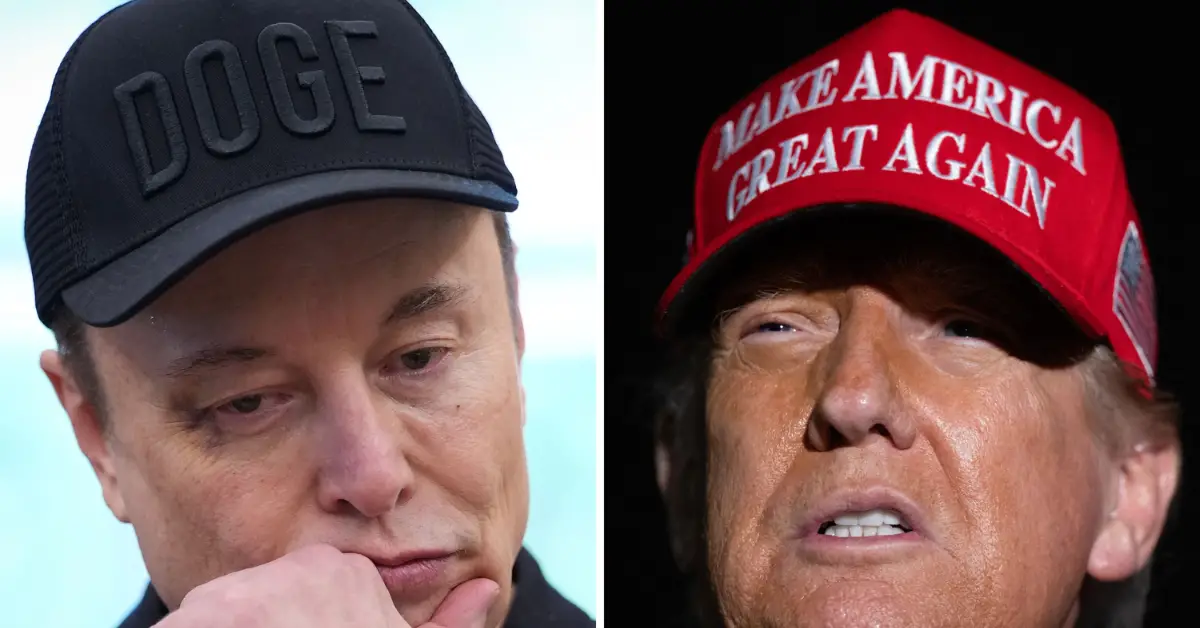President Donald Trump signed an executive order on Wednesday targeting the large law firm Susman Godfrey. This order is based on accusations that the firm is using the U.S. legal system to push a political agenda. The executive order removes security clearances from all the lawyers at Susman Godfrey and bans them from entering government buildings. Additionally, it directs the federal government to stop working with the firm and to end all its contracts.
The White House did not provide a detailed reason for targeting Susman Godfrey, but White House Chief of Staff Steven Miller mentioned during the signing in the Oval Office that the firm was “very involved in the election misconduct.” Despite having won re-election in November, Trump continues to claim that he lost the 2020 presidential election due to widespread voter fraud.
One of Trump’s baseless claims involved Dominion voting machines. Susman Godfrey represented Dominion in a lawsuit against Fox News. The lawsuit was filed because Fox News had repeatedly broadcast false reports about Dominion being involved in manipulating the election results. Susman Godfrey won a settlement worth $787.5 million for Dominion from Fox News.

In a statement on Wednesday, Susman Godfrey, a law firm based in Houston, firmly rejected the Trump administration’s actions. The firm said, “Anyone who knows Susman Godfrey knows we believe in the rule of law, and we take seriously our duty to uphold it. This principle guides us.” The firm also made it clear that it would not back down and would fight what it called an unconstitutional order.
Trump’s actions are not isolated. He has now taken similar steps against several major law firms across the country, accusing them of having connections to Democrats or supporting political opponents. Some law firms have managed to avoid punitive measures by making pro bono agreements with the Trump administration. These deals are said to be worth nearly $700 million, with Trump’s team predicting that this total could soon reach a billion dollars.
Trump also mentioned that the government plans to target at least five more law firms. The first law firm to face such an order was Covington & Burling on February 25. This action was due to the firm’s association with Jack Smith, the former special counsel who prosecuted Trump twice. Perkins Coie was next, facing retaliation on March 6 for its involvement in Hillary Clinton’s 2016 presidential campaign.
Paul, Weiss, Rifkind, Wharton & Garrison was sanctioned on March 14 due to its connection to a lawyer who helped the Manhattan District Attorney’s Office secure a felony conviction against Trump. On March 26, Jenner & Block faced similar sanctions due to its ties to lawyers involved in prosecuting Trump. Lastly, WilmerHale was targeted on March 27 because of its association with Robert Mueller, who led the investigation into Russian interference in the 2016 election.
Several of these law firms, including Perkins Coie, Jenner & Block, and WilmerHale, have taken legal action against the Trump administration, arguing that the executive orders directly attack their ability to practice law. Critics of these measures, such as the Foundation for Individual Rights and Expression, argue that these executive orders are designed to intimidate and stifle law firms from challenging the federal government.
Disclaimer: This article has been meticulously fact-checked by our team to ensure accuracy and uphold transparency. We strive to deliver trustworthy and dependable content to our readers.




